Mozambique: President appoints new rectors to public universities
Mozambique Elections: Decide observers refuse to hand over minutes to the CC so as not to “legitimise fraud”

FILE - For illustration purposes only. [File photo: Lusa]
The NGO Plataforma Decide, which is observing the elections in Mozambique, has refused the request from the Constitutional Council (CC) to make available minutes and notices from the October vote, claiming that they contain irregularities that “would serve to legitimise fraud”.
In response to the CC’s request, to which Lusa had access today, the non-governmental organisation (NGO) confirmed that it had collected notices from the general elections of 9 October in the provinces of Sofala, Zambezia, Nampula, Cabo Delgado and Niassa.
“During the private count carried out by this body, a serious discrepancy was noted between the numbers counted at the polling stations and the notices published by the electoral bodies in Nampula and Zambezia, the annulment and invalidation of opposition votes, ballot swapping and ballot stuffing, deficiencies in lighting at various points in Cabo Delgado, Niassa and Sofala, not to mention the failure to comply with the terms of participation in the vote counting phase at all levels based on the legal provisions,” the Decide response reads.
In light of this, the NGO, considering its “commitment to electoral truth”, said it believes “that the requested documents are notorious vehicles for legitimising electoral fraud”; “Therefore, we have informed you that it will not be possible to share what we have in our possession”.
“Therefore, and as a recommendation, we suggest that the CC, in addition to requesting minutes and notices, seek to establish contact with credible civil society organizations, with a view to [the latter] presenting an overall view of the entire process, in which they can count on us for whatever is necessary,” the NGO adds.
Last week, the Mozambican electoral consortium Mais Integridade also refused to send the minutes and notices of the general elections in its possession to the CC on the same basis – so as not to be a source of “distortion of the truth”.
On Wednesday, the president of the CC, Lúcia Ribeiro, stated that the body would this week analyse “the discrepancies” in the general elections results as so far announced, but that it would not recount the votes.
Ribeiro justified the decision with the fact that the National Elections Commission (CNE) itself had admitted, when it announced the results of the general count, “discrepancies between the three elections, but that it had not had time to verify”.
“So, the CC, being a judicial body, cannot give that same answer. But it remains a curiosity and a responsibility and a duty to understand why there is a discrepancy and where these discrepancies exist – from where this discrepancy began to exist,” said the president of the CC, which has the power to validate and proclaim the results of the October 9 presidential, legislative and provincial elections.
“But in this case, where there is an outcry regarding the numbers, then it is the responsibility of the CC, which has to sign these maps, these numbers (…). We thought it was up to us to verify what the problem was and where the problem lies. We notified the CNE to explain to us why there were discrepancies and this response is included in the file, which will then be assessed next week, when we sit down to assess the numbers,” Ribeiro said.
She explained that the Mozambican electoral process involves validation first and only then the proclamation of the results, in accordance with legislation approved by parliament, contrary to what happens in other countries, which proclaim the winners of the ballot with substantially shorter deadlines and only then decide on any disputes, with the CC being the final decision-making body in Mozambique.
Still, she admitted that this process – marked in 2024 by demonstrations and strikes called by presidential candidate Venâncio Mondlane, who does not recognize the results announced by the CNE, and which have already caused more than a hundred deaths – shows that it is necessary to “rethink the electoral system in the future”.
Although there are no specific deadlines, given the approaching end of the current legislature on January 12, the CC has until December 23 to proclaim the results of these general elections.
ON THE CONSTITUTIONAL COUNCIL’S REQUEST FOR MINUTES AND PUBLIC NOTICES
“In view of the above and our commitment to electoral truth, we believe that the documents requested are notorious vehicles for legitimizing electoral fraud, and we therefore inform you that it will not be… pic.twitter.com/AzNsmweQYN
— Plataforma_decide (@PDecide23) December 15, 2024


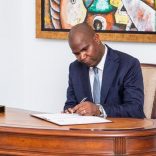
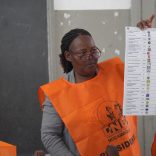
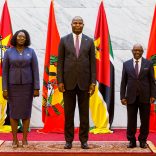
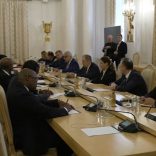
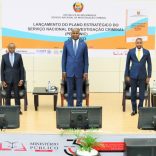
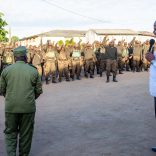




Leave a Reply
Be the First to Comment!
You must be logged in to post a comment.
You must be logged in to post a comment.